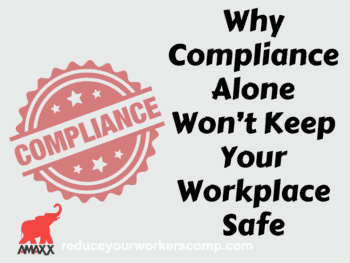Travel as a Stress Factor
The American College of Occupational and Environmental Medicine reported employees who travel more than two-thirds of the month are more than two and a half times more likely to rate their health as poor than workers who travel less often.
The American College of Occupational and Environmental Medicine reported employees who travel more than two-thirds of the month are more than two and a half times more likely to rate their health as poor than workers who travel less often.
According to HeartMath.com, the heavy travelers were also 92 percent more likely to be obese and had higher blood pressure and cholesterol than their co-workers who were only traveling one or two times per month. (WCxKit)
Authors of the study attributed the health discrepancies to the long car rides, unhealthy food, and disrupted sleep patterns that usually happen when someone spends a great deal of time away from home.
Interestingly, the research involving 13,000 employees also discovered that workers who did not travel were not as healthy as those who traveled lightly. The authors said this is likely due to the fact unhealthy workers are less likely to be put on travel assignments.
The researchers commented that organizations that want to assist their hard-working employees attain improved health may want take initiatives like implementing employee wellness programs and offering gym memberships.
High Level vs. Low Level Stress
Further, nearly 40% of employees in a Chartered Management Institute (CMI) study pointed to their supervisor as a chief contributor of workplace stress. An additional 34% said their boss makes work less enjoyable and 10% blamed the boss for their poor health, as reported by website Heartmath.com.
While it is common knowledge that high levels of stress have detrimental effects on an individual's mental and physical health, a new study reports that even moderate anxiety may increase a worker's chance of disability by 70 percent. The study was published in the Journal of Epidemiology and Community Health.
According to a report from Heartmath.com, researchers examined the journal's data of more than 7,000 employees from 45 to 65 years of age over a five-year period. They discovered that the results supported long held beliefs regarding the health of those under intense stress but were surprised about the effects of everyday anxiety on individuals, a number that was high even when they corrected for lifestyle habits. An abstract of the journal's study indicated scientists looked at the combined effects of work stress and socioeconomic position. Figuring in socioeconomic position, occupational position and educational level, scientists found stress is related to angina pectoris, depression, and poor self-rated health. All three measures in the journal study created additional work stress but poor health was highest in cross-sections combining high work stress and low socioeconomic position.(WCxKit)
The abstract reads, "Although stress at work was related to poorer health in the total study group, the strongest associations were consistently observed in men and women with low educational level or low occupational position. Worksite health promotion should be directed primarily towards these target groups."
Authors of the study commented its results could have important implications for modern employers, who seem to be placing more stress on workers than ever.
"Are the strains and demands of modern society commonly exceeding human ability?" researchers asked.
Stress accounted for one-fourth of disability claims related to physical illness, and two-thirds of those stemming from mental issues. (WCxKit)
Further, nearly 40% of employees in a Chartered Management Institute (CMI) study pointed to their supervisor as a chief contributor of workplace stress. An additional 34% said their boss makes work less enjoyable and 10% blamed the boss for their poor health, as reported by website Heartmath.com.
Joe Robinson of the Huffington Post concluded workplace stress triggers the brain's panic responses saying, "Stress constricts your brain to the perceived crisis and inhibits all the things that can reduce the stress, such as relaxation, recreation and play." This kind of stress can lead to anything from adrenal dysfunction to back pain, he said, noting that a relaxed breathing techniques are among the best tools for reducing stress.
In addition to making sure staff members have manageable workloads, organizations may want to think about employee wellness programs in order to lessen workplace stress and improve employee wellness.
Author Robert Elliott, executive vice president, Amaxx Risks Solutions, Inc. has worked successfully for 20 years with many industries to reduce Workers Compensation costs, including airlines, healthcare, printing/publishing, pharmaceuticals, retail, hospitality and manufacturing. See www.LowerWC.com for more information. Contact:Info@ReduceYourWorkersComp.com.
Our WORKERS COMP BOOK: www.WCManual.com
WORK COMP CALCULATOR: www.LowerWC.com/calculator.php
MODIFIED DUTY CALCULATOR: www.LowerWC.com/transitional-duty-cost-calculator.php
SUBSCRIBE: Workers Comp Resource Center Newsletter
Do not use this information without independent verification. All state laws vary. You should consult with your insurance broker or agent about workers comp issues.
©2011 Amaxx Risk Solutions, Inc. All rights reserved under International Copyright Law. If you would like permission to reprint this material, contact Info@ReduceYourWorkersComp.com.
















